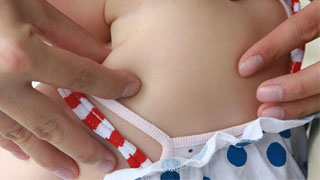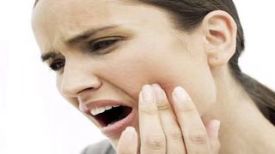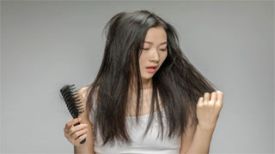My little granddaughter is five and a half years old and has been constipated for over a year. She has been defecating since the age of three, which is made up of sheep feces and eggs. She has been using Chinese medicine for three months, but when the medicine stops, it rebounds. Could you please help me with some tips.
Many children may experience constipation. If young children choose to use physical methods, such as pediatric massage, many parents are willing to accept it because young children are not suitable for taking medicine or feeding, so they first choose physical stimulation methods. However, for older children or yourself, if you encounter this problem, many people's first concept is to choose to eat traditional Chinese medicine. I think from the perspective of stimulation methods, the order should be from light to heavy. If a suitable stimulation method is chosen, then physical stimulation methods should be prioritized from first to last.

The nervous system, which controls the peristaltic rhythm of the gastrointestinal tract, produces a physical stimulus that can regulate the central function through the body's neural reflex, thereby promoting the formation of a certain rhythm. This process can not only help restore normal rhythms, but also be repeated, so its side effects are minimal. It is more suitable for situations where the disease duration is not particularly long and the condition is not particularly severe. For example, most children are actually fed improperly, such as eating too much, eating too well, having too many calories, or taking antibiotics due to illness, causing damage to the gastrointestinal tract. Antibiotics, whether intravenous or oral, can cause damage to the gastrointestinal tract. Okay, they are all products of great cold, which can easily damage the spleen yang and cause damage to gastrointestinal function, The rhythm of gastrointestinal peristalsis is affected, so if it is just a rhythmic problem or if you want to help promote the generation of this rhythm, then physical stimulation methods should be used. Based on this, probiotic treatment is generally chosen, such as lactobacilli and bifidobacteria, which can promote digestion and absorption. These probiotics will help children build their beneficial bacterial community. In other words, if the gastrointestinal rhythm is abnormal or the gastrointestinal tract has been damaged in the past, there may be chronic inflammatory reactions or a lack of liquid in the gastrointestinal mucosa, which is relatively dry. At this time, after the gastric mucosa is damaged, the beneficial bacteria attached to the navel will inevitably have an imbalance in the bacterial community. The treatment with probiotics can help restore the balance of gut microbiota.
The third choice is to choose traditional Chinese medicine, not relying on it to relieve constipation, because even adults who use laxatives can cause intestinal melanosis, which is further damage to the intestinal mucosa. Instead, some traditional Chinese medicine that promotes digestion and absorption should be used, and the beneficial effects of promoting digestion and absorption of traditional Chinese medicine have been achieved to some extent. At this time, using such traditional Chinese medicine may increase the burden.
Isn't it enough to just use traditional Chinese medicine without probiotics? But there are actually many possibilities. Even if traditional Chinese medicine is more suitable and has a promoting effect on digestion and absorption, many children may experience food intolerance. Food may become hypersensitive or unable to be digested and absorbed. Moreover, drugs, especially the decoction made from multiple traditional Chinese medicines, may cause sensitization in some children. Therefore, when taking traditional Chinese medicine, especially for children, the taste of the medicine should be less prescribed and the prescription should be simpler. My experience is that probiotics should be given to you first, and on the basis of taking probiotics, some Qi tonifying and Qi promoting drugs should be given. These drugs cannot be achieved by probiotics. A small amount of medicine should be used to promote digestion and absorption, because probiotics have already achieved their effects, so there is no need to add another medicine, 6-10 grams.
Physical methods have already played a rhythmic role in regulating the gut microbiota, and probiotics have supplemented the gut microbiota. At this time, a small amount of traditional Chinese medicine is added, and even traditional Chinese medicine does not need to be taken orally, such as navel patches or sachets. Traditional Chinese medicine with this aromatic effect can actually play a role in promoting qi circulation, promoting gastrointestinal rhythm, and helping to improve constipation.
For such children, if they are under 3 years old, only the method of pediatric massage with probiotics can be used. If they are over 3 years old or under 8 years old, a moderate amount of traditional Chinese medicine can be used. This method is not only helpful for the child's health, but also does not cause confusion or blockage.


